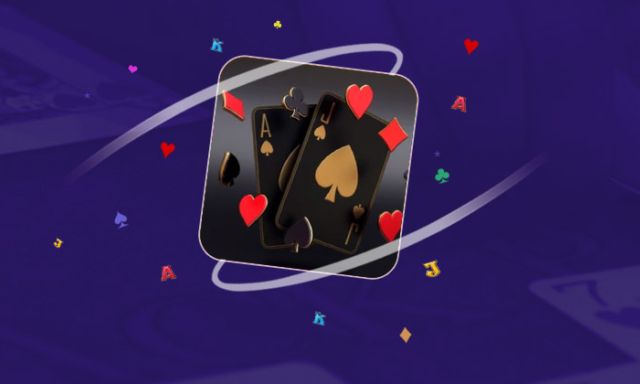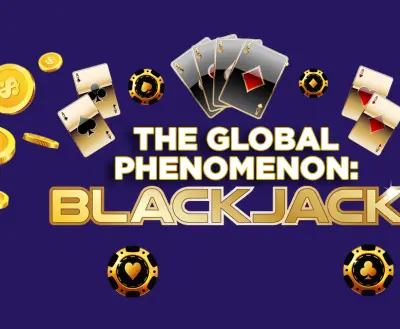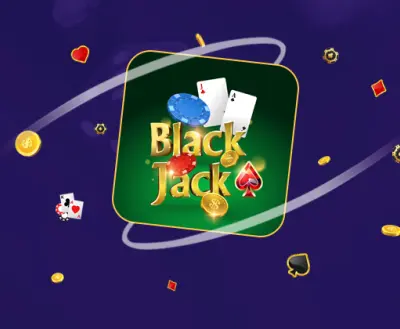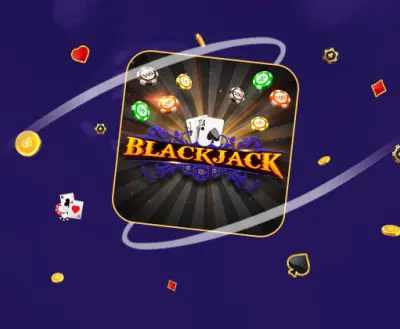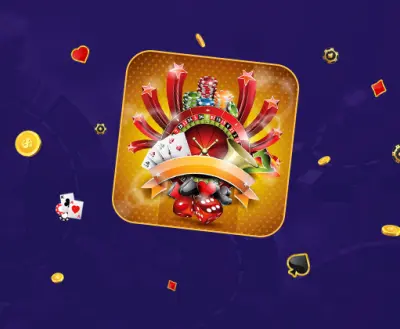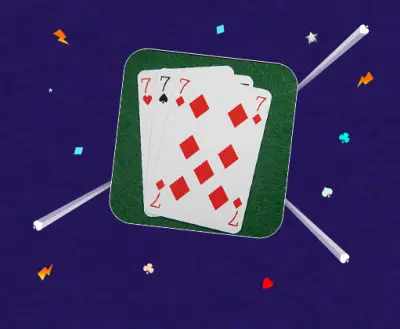Key Takeaways:
- Blackjack, a popular global casino game, possibly originates from ancient China or Rome.
- Modern Blackjack is believed to have evolved from the 18th-century French game 'Vingt-et-Un'.
- The game spread from Europe to America in the 18th century, gaining widespread popularity after Nevada legalised gambling in 1931.
- The mid-20th century saw the standardisation of rules and the emergence of strategies like card counting, popularised by Dr. Edward O. Thorp's book, "Beat the Dealer".
- The game's name, 'Blackjack', came from a special bonus payout offered in early Nevada casinos.
- The 21st century introduced digital transformations like online platforms and live dealer games, enhancing the game's accessibility and engagement.
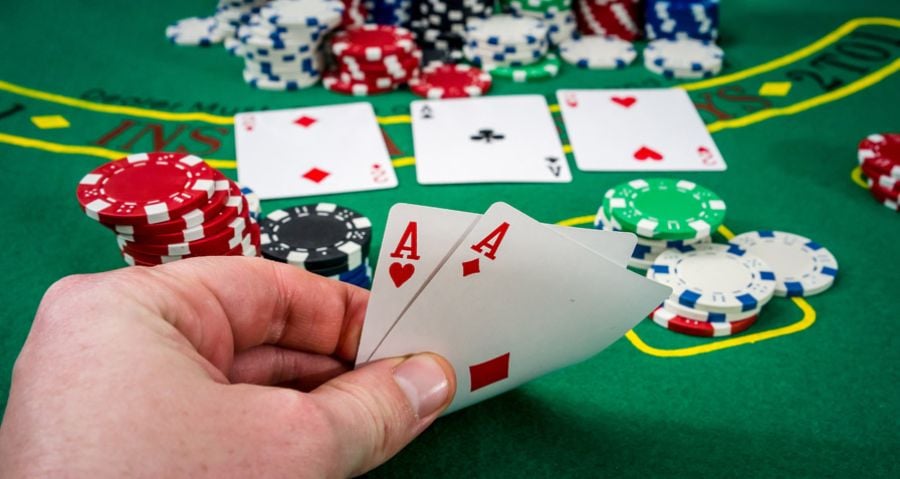
The History of Blackjack: A Look Back
Blackjack isn't just another card game. With its rich variety, it's become a global casino favourite, gracing both physical and online platforms. This total-based card game, captivating gamblers for centuries with its mix of skill and chance, has deep roots stretching across continents and into the heart of global gaming culture.
Ever wondered about the story behind blackjack? Where did it start, and how did it transform into the game we cherish today? In our journey through the history of blackjack, we'll trace its steps from distant beginnings to the 21st-century digital tables. Here at PartyCasino, we believe that knowing the history and evolution of blackjack enhances your gaming experience and deepens your appreciation of the game.
We'll traverse the path from the French Vingt-et-Un to European influence, onto the dazzling casinos of Las Vegas, and finally, the realm of online blackjack. Every blackjack bet we place participates in a tradition spanning hundreds of years, contributing to our collective gambling heritage.
So, sit back, grab your favourite beverage, and join us in this exciting journey through the rich history of blackjack, a truly beloved game.
Table of Contents:
Origin of Blackjack
Possible Ancient Roots
As we trace the history of blackjack, it's intriguing to ponder the question: How far back does the story of this game truly extend? Although the game as we know it today is a product of more recent history, some believe that its roots may lie much further back.
Chinese Origins
Have you ever thought about the fact that blackjack might have originally sprung up from the ancient Chinese civilization? The Chinese have always been fond of games of chance, and evidence suggests that they had been playing card games as early as the 9th century.
Some historians suggest that a game called 'The Game of Leaves' may have been an early predecessor to modern blackjack. This game involved decks of cards, and the aim was to reach a certain total, much like our beloved total-making card game. While this theory is far from proven, it's fascinating to consider such ancient roots of the game we enjoy today!
Roman Origins
Meanwhile, other researchers point to ancient Rome for the game's origins. Have you ever heard of a Roman game involving wooden blocks with different numerical values? Apparently, Romans were known for their love of gambling, and it's thought that this could have been a very early form of blackjack. We can't say for sure, but it's certainly interesting to think that we might be following in the footsteps of ancient Roman gamblers each time we sit down to a blackjack table!
The Game in Europe
As we move forward in time, the origins of blackjack become somewhat clearer as we reach Europe, where the game's history becomes more traceable.
Vingt-et-Un in France
The most accepted theory among historians is that modern blackjack is a direct descendant of the French card game 'Vingt-et-Un', which means 'twenty-one'. Played in French casinos in the 18th century, Vingt-et-Un had a striking resemblance to today's blackjack, which makes us believe that our favourite casino game might have had a French influence. Isn't it intriguing how the nuances of a game crafted centuries ago have been preserved in the blackjack we know and love?
Transition to Other European Countries
Following its popularity in France, Vingt-et-Un crossed the borders, finding its way to other European countries. Each country adapted the game, creating variants, but the basic essence remained - a total-based card game that requires a blend of luck and strategy. As it spread, it started to acquire the elements that would later form modern blackjack.
As we follow blackjack's journey, it's clear that this game is not just about hitting, standing, or doubling down. It's a testament to human creativity, adaptation, and our love for a good challenge.
Evolution of Blackjack
The Game's Transition to America
With roots in Europe firmly established, the next step in the journey of blackjack takes us across the Atlantic to the New World. As we continue tracing the game's path, we'll discover how it evolved in a new environment.
Early Popularity in the West
Can you imagine how the game of blackjack must have felt to early American players? It's believed that the game came to America with French colonists in the 18th century. Much like its European counterpart, the game was a hit in the saloons of the Wild West. A different environment and a new set of players began to shape the game, starting its transformation into the blackjack variants we know today.
Legalisation and Growth in Popularity
But here's a twist in the tale: did you know that gambling, including blackjack, faced a period of prohibition in the early 20th century in America? Yes, it's hard to imagine, but this popular casino game wasn't always welcome. However, with the legalisation of gambling in Nevada in 1931, the era of prohibition ended.
This was the turning point that led to the explosive growth of blackjack's popularity. Players flocked to casinos, eager to challenge the dealer in this exciting total-making card game. From then on, blackjack was back on track, ready to become a casino classic.
Development of Modern Rules
The evolution of blackjack wasn't just about spreading to new territories. It also involved the development and standardisation of rules, shaping the game into the form we are familiar with today.
The Bonus Payout and the Name "Blackjack"
Ever wondered how the game got its name 'blackjack'? It's an interesting story tied to an innovative bonus payout. In the early days of Nevada casinos, to attract players, a special payout was offered for a hand consisting of the Ace of Spades and a black Jack (either Clubs or Spades.
This hand, called 'Blackjack', paid out at 10-1 odds! Even though this particular bonus was eventually phased out, the name stuck, and 'Twenty-One' began to be universally known as 'Blackjack'. Isn't it intriguing how a simple marketing strategy could leave such a lasting impact on the game?
Standardisation of Rules and Gameplay
As the game grew in popularity, it became apparent that standardisation was necessary. During the mid-20th century, rules for blackjack began to be formalised. Concepts such as 'splitting', 'doubling down', and the dealer's obligation to hit on 16 and stand on 17 became the norm.
The aim was to make the game fair, predictable, and enjoyable for all players. The standardised rules not only made the game more accessible but also set the stage for strategizing and, later, card counting, which added a whole new dimension to the game.
Blackjack in the 20th Century
Blackjack's story doesn't end with its establishment in America and the standardisation of its rules. In fact, the 20th century ushered in a period of exciting changes and developments for our favourite card game. From influential literature and the incorporation of mathematical analysis to legal changes that shaped the gambling landscape, let's delve into this transformative era.
Influence of Literature and Academia
Mathematical Analysis and Card Counting
Now, what would you say if we told you that mathematics could give you an edge at the blackjack table? It sounds intriguing, right? The mid-20th century saw academics turn their attention to the game, applying mathematical principles to create strategies aimed at reducing the house edge.
A notable name here is Dr. Edward O. Thorp, a mathematics professor who's often referred to as the "father of card counting". He developed a system to keep track of the ratio of high to low cards remaining in the deck, realising that this information could be used to the player's advantage. But would this strategy really work?
Impact of Literature such as "Beat the Dealer"
In 1962, Thorp decided to share his findings with the world in his book, "Beat the Dealer". Considered one of the most influential publications in the history of blackjack, it introduced card counting to the masses and proved mathematically that players could indeed overcome the house edge. Can you imagine the excitement of players upon discovering that with the right strategy, they could turn the tables on the casino?
This book had a profound impact on how people approached blackjack, transforming it from a game of chance to a game of skill, and paved the way for future research and strategy development in blackjack.
Legal Changes and the Rise of Las Vegas
Blackjack in Nevada Casinos
As we've mentioned before, the legalisation of gambling in Nevada in 1931 was a game-changer for blackjack. With this change, the popularity of blackjack skyrocketed, making it a staple offering in casinos.
Las Vegas, with its glittering casinos and vibrant nightlife, became the epicentre of gambling in the US. From the glamorous Vegas Strip to Downtown's Fremont Street, blackjack tables were always filled with eager players. Nevada's casinos played a pivotal role in shaping blackjack into the popular casino game it is today.
The Spread to Atlantic City and International Casinos
But why should Las Vegas have all the fun, right? In 1978, gambling was legalised in Atlantic City, New Jersey, giving the East Coast its own gambling destination. Blackjack was one of the major games offered in these new casinos, further spreading its popularity.
But it wasn't just America. Over time, blackjack spread to casinos worldwide, taking the global gambling scene by storm. It’s fascinating to see how this French card game from the 18th century became a beloved staple in casinos all over the world.
Blackjack in the 21st Century
The game of blackjack has come a long way since its humble beginnings, and its story is far from over. This century has brought about even more exciting developments, particularly in the realm of technology and the digital landscape. So, let's explore how the game we love continues to evolve in our modern world.
Evolution of Strategies and Tactics
Impact of Technology on Card Counting and Strategy
Firstly, let's talk about strategy. As we've mentioned, the science of card counting revolutionised blackjack in the 20th century. But the 21st century said, "Hold my beer," and introduced technology into the mix. Nowadays, players have a plethora of digital tools at their fingertips, helping them understand the game's intricacies and devise winning strategies. Isn't it amazing how far we've come?
From online strategy charts to blackjack calculators, technology has truly transformed the way we approach the game. Even card counting has evolved with software that can simulate millions of hands, allowing players to practise and refine their techniques. But does this mean that blackjack has lost its charm? Not at all! It's just added another layer of intrigue to the game.
Continued Influence of Academic Research
While technology is indeed transforming the game, let's not overlook the continued influence of academic research on blackjack. Scholars and mathematicians continue to study the game, developing more refined strategies and a deeper understanding of its probabilities. Their efforts ensure that blackjack remains a game of skill as much as luck, don't you agree?
The Rise of Online Blackjack
Initial Introduction and Growth of Online Platforms
Now, let's discuss a development that's close to our hearts at PartyCasino - the rise of online blackjack and live blackjack! The internet has brought about monumental changes in many industries, and gambling is no exception. The late 20th century saw the birth of online casinos, and by the time the new millennium rolled around, digital blackjack was already gaining momentum.
Offering players the chance to enjoy their favourite card game from the comfort of their own homes, online platforms quickly became popular. Can you imagine, no longer having to dress up and drive to a physical casino to play blackjack? It was a game-changer!
Live Dealer Games and Other Modern Innovations
As technology continues to advance, so too does online blackjack. One of the most exciting innovations of recent years is live dealer games. In these games, a real human dealer is streamed directly to the player's device, dealing physical cards on a real table. It's the perfect blend of online convenience and authentic casino atmosphere.
Additionally, the arrival of mobile gaming has made blackjack even more accessible. Now, you can enjoy a quick game on your lunch break or while waiting for a bus. It's safe to say, whether you're a seasoned player or a curious beginner, there's never been a better time to delve into the world of blackjack! Experience live blackjack at our licensed online casino.
Conclusion
From its possible roots in ancient China or Rome, through its adoption and modification in Europe (remember Vingt-et-Un?), to its migration across the ocean to America, blackjack has been shaped by diverse cultures and influences over the centuries. The game's history is as multifaceted as a well-cut diamond, and just as precious to us.
Looking back on the evolution of blackjack, it's clear to see that this isn't just a game; it's a part of our shared cultural history. It's a testament to human ingenuity and the love of a good challenge. But more than that, it's a testament to our collective love for a game that combines luck, skill, and a healthy dose of adrenaline.
Blackjack has, without a doubt, made its mark on the world. From the glitzy casinos of Las Vegas to our own digital platforms here at PartyCasino, its impact is felt far and wide. As we reflect on this journey, we can't help but feel a sense of pride. We're not just playing a game; we're participating in a rich, fascinating tradition.
Further Reading: How to Play Blackjack UK: A Comprehensive Guide.

